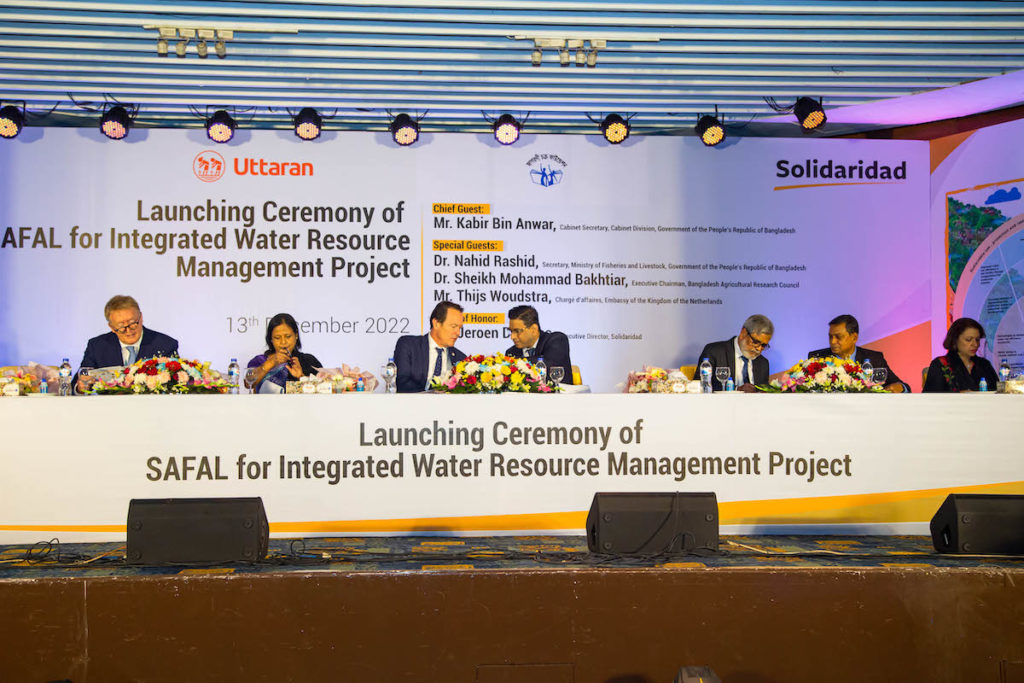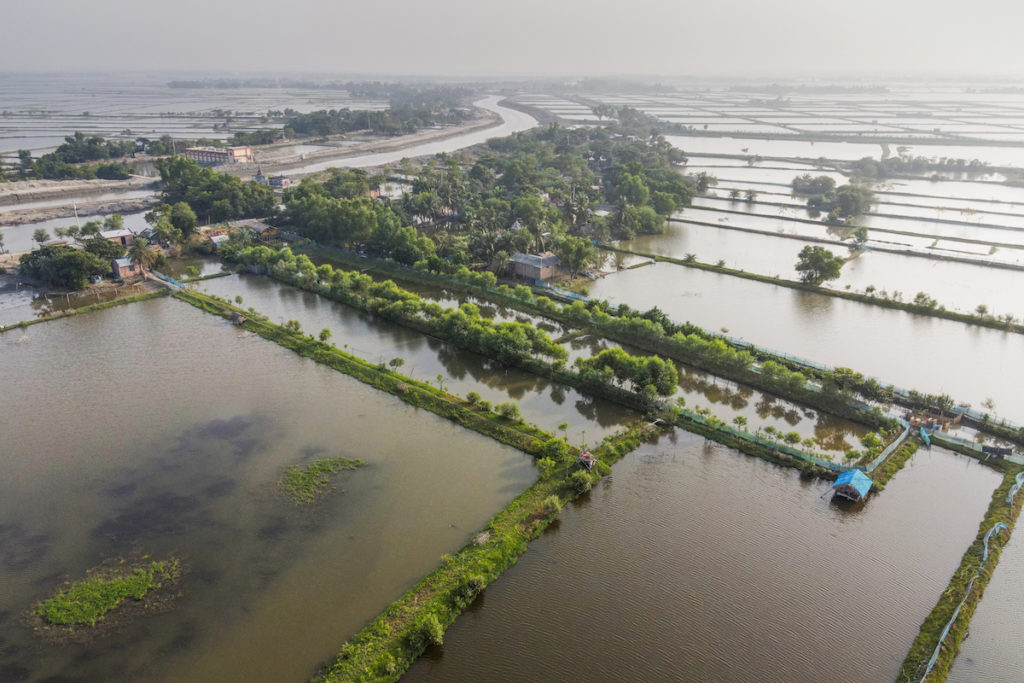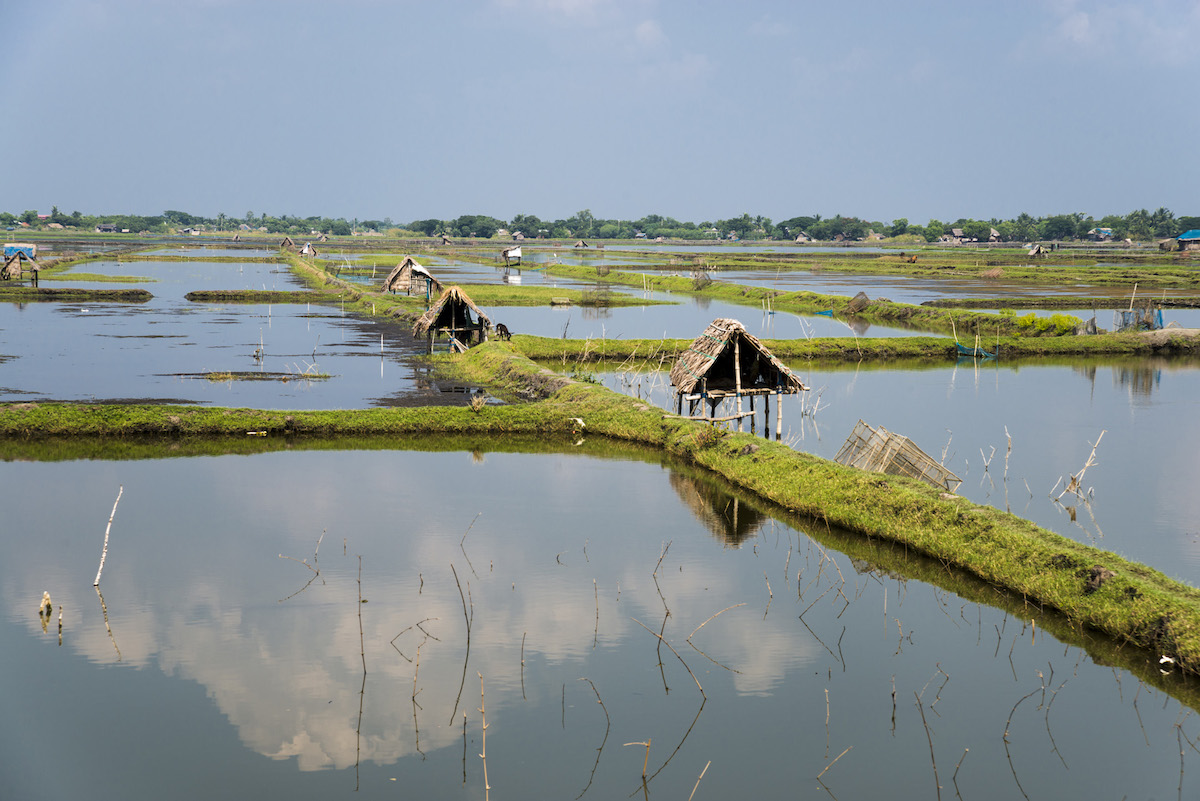SAFAL for Integrated Water Resource Management (IWRM) was launched in Bangladesh on 13 December. The project applies an innovative ecosystem-based water and land use planning system to improve climate resiliency and generate better returns for coastal communities.
The project aims to recharge 80 micro-watersheds at the sub-catchment level in the districts of Jashore, Narail, Satkhira, Khulna and Bagerhat of southwest Bangladesh. This will be done by promoting community-based water management models through interventions like water-efficient, climate-smart, and regenerative agriculture practices, as well as watershed protection management.
The SAFAL for IWRM project will showcase how a community-based water management plan can lead to resilient agriculture. We all have the common agenda of building Bangladesh and ensuring the farmers’ voices are heard.
Shahamin Sahadat Zaman, Chairperson, International Supervisory Board of Solidaridad
At least 90,000 farming households in these five districts will be supported to adopt regenerative agricultural practices to diversify their crops, and improve crop yield and income. Cumulatively, this will benefit 450,000 community members.
“Our strategic approach is to bring a systemic change in the operationalization of the IWRM in Bangladesh,” said Shatadru Chattopadhayay, Managing Director, Solidaridad Asia. “We will enhance the capacity of the local communities while introducing structural improvement in farms and micro-watersheds through innovative designs and technology.”
The SAFAL for IWRM project succeeds the 10-year-long Sustainable Agriculture, Food Security, and Linkages (SAFAL) project, which was implemented through public-private partnerships, including with Bangladesh’s Ministry of Agriculture. The SAFAL project contributed to increasing the productivity and income of over 106,000 smallholders engaged in dairy, soy, aquaculture, and fruits and vegetable farming. It led to the formation of 80 farming clusters, 65 market structures, and 1,531 producer groups, and significantly contributed to forward and backward market linkages, including export of mango and vegetables to international markets.
“We take particular pride in two things. First, we have expertise in different sectors of the supply chain and we are trying to lift the supply chain for more sustainable performance,” said Jeroen Douglas, Executive Director, Solidaridad Network. “Second, while we are a civil society organization and not from the market, we do operate in the market. Our intent is to help the brave farmers of Bangladesh.”

Other attendees at the launch shared their perspectives:
- “Throughout the implementation of the SAFAL project, we realized that sustainable and climate-smart agriculture requires a stronger community engagement. Working in close coordination with the local authorities, we have already demonstrated six community-managed micro-watersheds.”
– Selim Reza Hasan, Solidaridad Country Manager, Bangladesh
- “There is potential to improve fisheries and livestock in the coastal areas of Bangladesh by efficient and sustainable use of available water and land. We are pleased and honored to have been a part of the SAFAL project.”
– Dr Nahid Rashid, Secretary, Ministry of Fisheries and Livestock, Government of the People’s Republic of Bangladesh
- “Bangladesh has made remarkable progress in the agriculture sector. I would like to thank the Netherlands government for their collaboration with the Bangladesh government to improve agricultural productivity… I am very happy with the launch of this project which can help coastal communities that are extremely vulnerable to climate shocks.”
– Dr Sheikh Mohammad Bakhtiar, Executive Chairman, Bangladesh Agricultural Research Council
- “I am delighted with the launch of the SAFAL for IWRM project, which aims to improve and diversify coastal agriculture of Bangladesh through innovative designs, plans, and models of proper water and land use to achieve greater good for climate and farmers of the country.”
– Thijs Woudstra, Chargé d’affaires, Embassy of the Kingdom of the Netherlands


